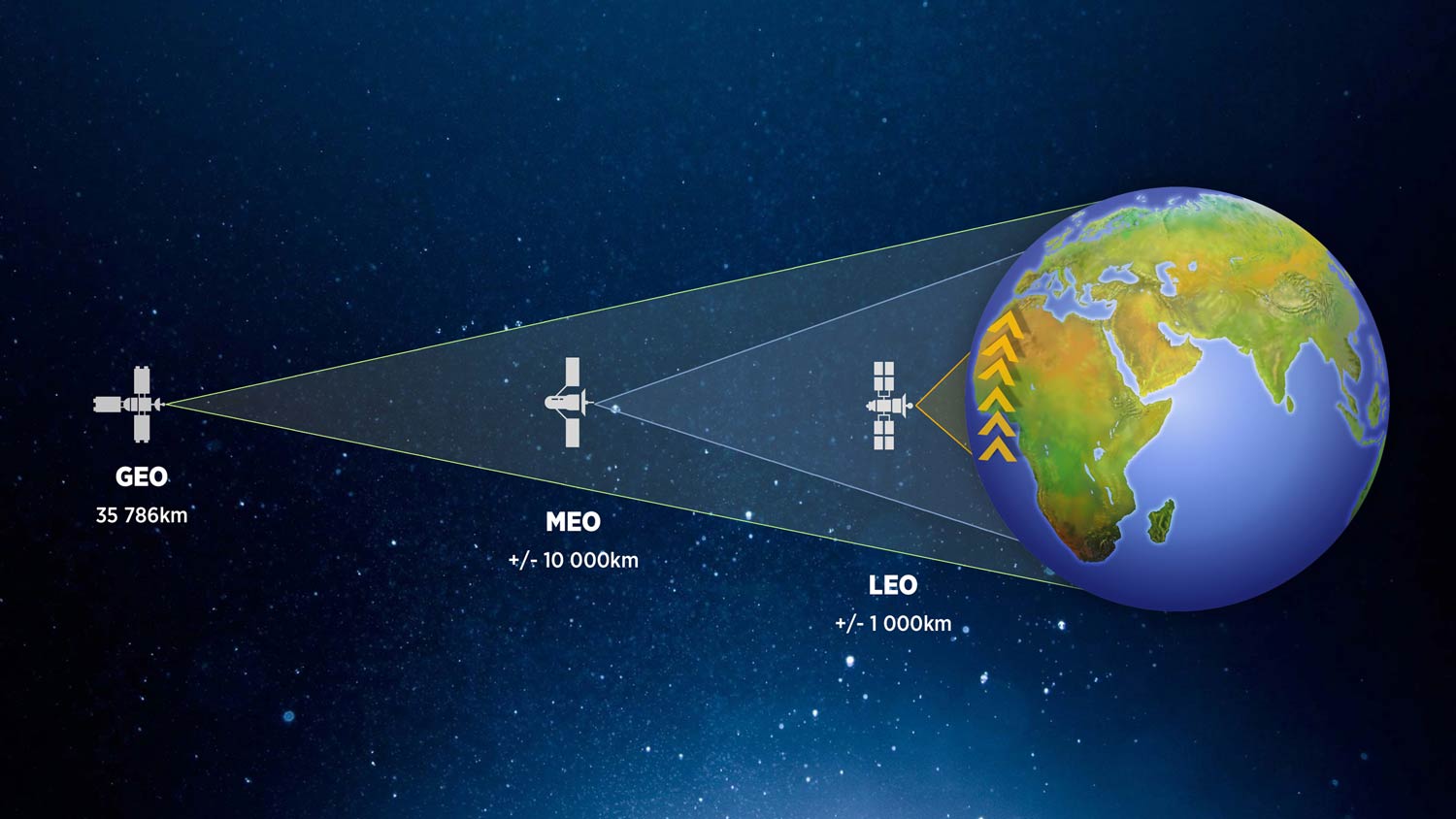
There are 36 registered low-Earth orbit (Leo) satellite constellations, with the 10 largest satellite operators alone planning to launch more than 63 000 satellites in the coming years.
Looking at the technology adoption bell curve, we are rapidly entering the early adoption phase and preparing for uptake by the early majority. Africa has a proud history of technology innovation, with many technology firsts having found market success on the continent, including mobile money and prepaid services. Leo services will likely be no different. (In the context of this article, we are referring solely to the use of Leo constellations for two-way high-speed voice and data telecommunications services.)
While low-Earth orbit satellites are a proven technology, their use in data telecoms is a more recent development. They deliver benefits including 10x (or greater) improvements in speed, capacity, latency and cost compared to geostationary-orbit satellite (Geo) deployments. These improvements raise the question as to whether these new Leo services will now replace legacy Geo services. Alternatively, in what scenarios could we see new Geo/Leo combinations servicing and growing the African market?
And – not or
Leo constellations will add significant data capacity to the overall telecoms ecosystem servicing Africa (which currently consists of international and regional fibre cable networks, mobile networks and Geo satellite networks). Northern Sky Research forecasts that around 78Tbit/s of usable capacity will be brought to the global market by the major Leo constellations over the next five years. While some of this total capacity will be stationed over the oceans and therefore lost to the addressable market, the usable portion far exceeds the combined total of 3Tbit/s currently being provided by all current Geo constellations.
This underlines the fact that Leo services will replace the Geo networks. Nor will they make them redundant in the future, or limit the anticipated growth in Geo constellations. It is not a case of Leo or Geo services, but rather of Leo and Geo services. The massive, demonstrated advantages of Leo constellations will open up new and peripheral user market sectors rather than supplanting Geo.
Leo satellites are different
Leo networks have more in common with mobile cellular networks than they do with Geo networks due to the fact that they involve hundreds of “satellite base stations” orbiting the globe and passing over the user. In a mobile network, the users pass from base station to base station, while in a Leo network, it is the base stations that pass over the user.
This means that Leo user terminals will always incorporate more complicated antenna technology to keep tracking the satellites passing overhead. Also, the satellite receiving signal will always fluctuate, leading to variable reliability and much shorter technology replacement cycles.
Leo network users have access to much more overall network capacity, 10x higher data transfer rates, data transmission at much lower latencies and reduced go-to-market pricing models.
 For reference, many of the current very low-cost equipment and service user advantages quoted here have more to do with business models, industry structures and scale than they do with the fundamentals of Leo services.
For reference, many of the current very low-cost equipment and service user advantages quoted here have more to do with business models, industry structures and scale than they do with the fundamentals of Leo services.
The best of both worlds
Eutelsat’s history of innovation has continued its merger with OneWeb – a bold step that merges Leo and Geo services and builds on their strong foundations in advancing technology frontiers and service delivery in Africa. In 2005, Eutelsat and Q-Kon partnered to deliver the Eutelsat Opensky service to Africa. This service combined the advantages of direct-to-home satellite technology with ADSL landline transmit networks – a leading-edge solution at the time.
In 2017, this was followed by the successful launch of the Eutelsat Konnect Africa Geo Ku-band broadband service. In 2022, Q-Kon Africa signed a distribution partnership with OneWeb, which means that following the merger between OneWeb and Eutelsat, Twoobii customers will benefit from access to Leo/Geo connectivity provided by a single satellite service operator.
Leo-Earth orbit satellites will succeed
Leo services will be successful in Africa. The massive network capacity, high data transfer rates, lower commercial price points and low latency will deliver tangible business advantages to mobile operators, businesses and retail consumers.
Global Leo leaders have now clearly demonstrated the feasibility of the technology and the reality of this new era of services. All that remains is to work with Africa to find best-fit, go-to-market models that balance risk and performance, since currently neither the “low touch” nor the “classical distribution” business models appear ideal for sustainably developing and servicing the African market.
Geostationary will continue to grow
Many of the innovations in launch and satellite design technologies being leveraged by the Leo industry to deliver savings and improved performance are also available to the designers of next-generation Geo satellite platforms.
Given that the principal network architecture of Geo services is much simpler than that of Leo networks, there are no material reasons why future Geo satellites cannot also be designed to unlock significant cost reductions and multiple performance improvements.
The advantage of low latency will always be exclusive to Leo networks, yet low latency by itself is not a guarantee of market success; nor can it keep a market locked to other solutions such as Geo services. Given the sustained growth of the financial transactions market, the need for highly reliable solutions, coupled with the size of the lower-income broadband market sector, future demand for Geo services is likely to be robust.
Together with a Geo satellite technology design update to maximise performance and cost benefits, updates to industry structure and business models may also be required. In some cases, current constraints on Geo services relate more to entrenched industry structures than to actual Geo technologies.
The success of global Leo constellations has forever changed the scope of what can and can’t be achieved in the telecoms industry.
- The author, Dawie de Wet, is group CEO of Q-Kon Africa and chief engineer for Twoobii, a Southern African-supported satellite broadband service




